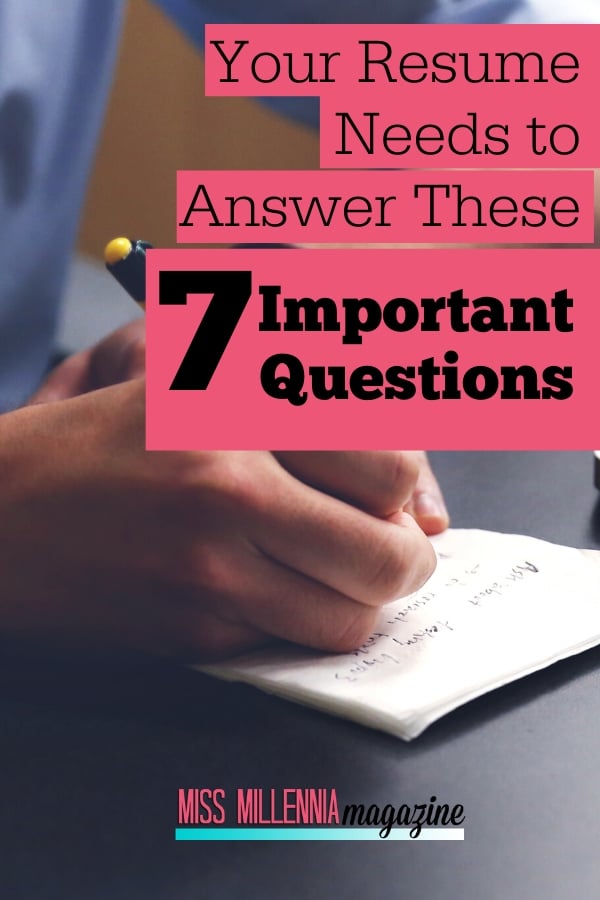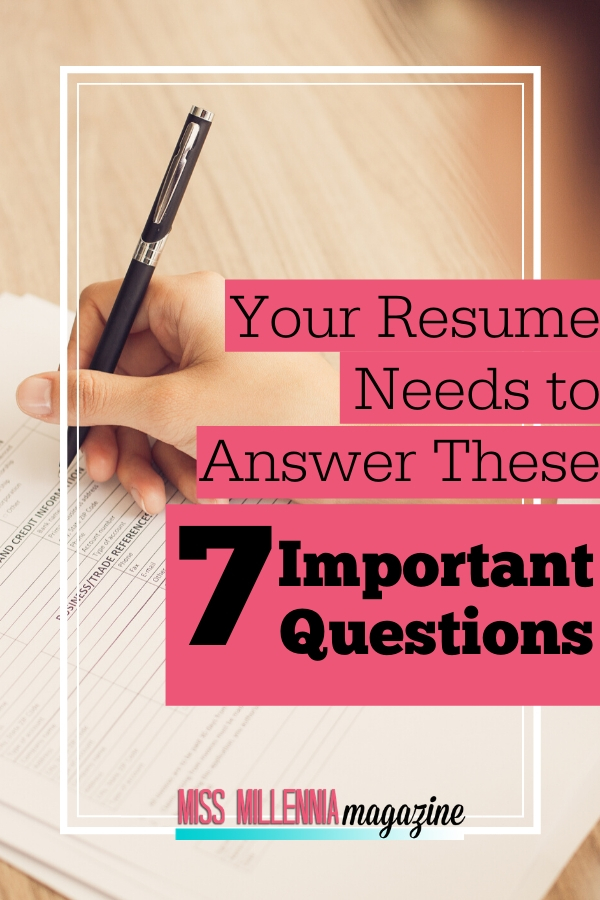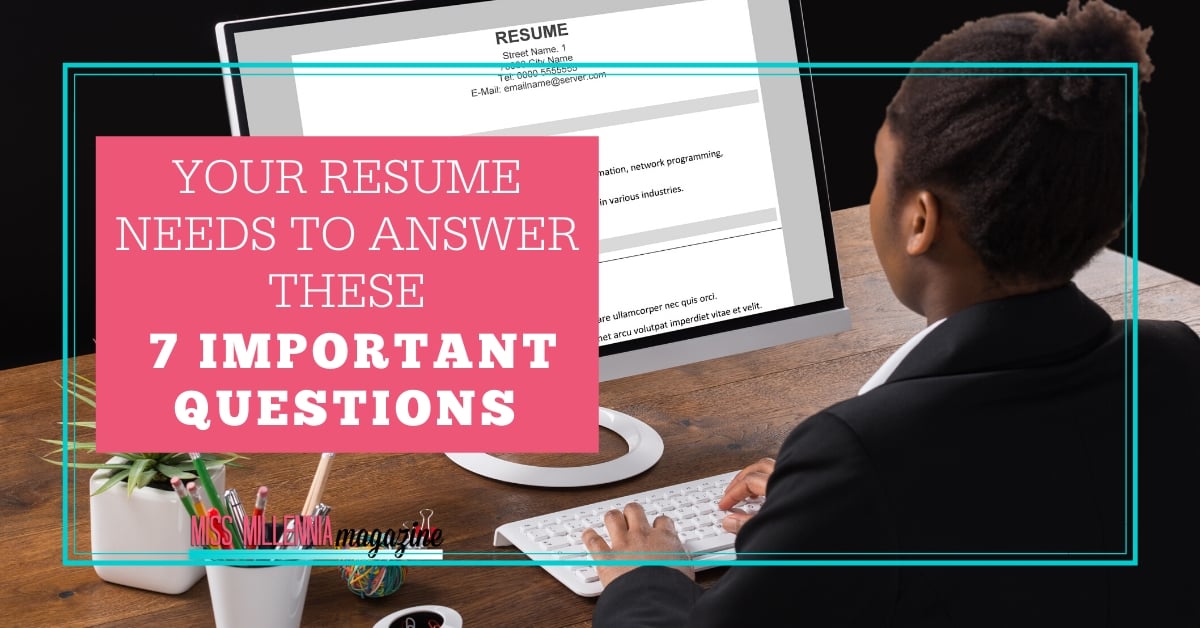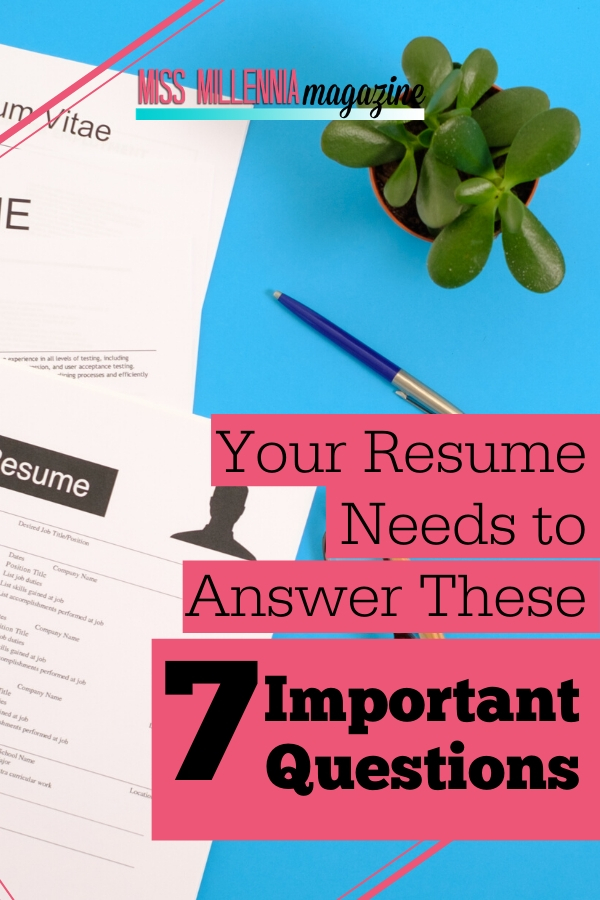Your Resume Needs to Answer These 7 Important Questions
Having a killer resume that stands out from the pack is one of the most important things you need to do when job-hunting. Employers are receiving dozens of applications that list skills and experience, but they’re looking for one that says, “I am the solution to your problem.” To do that, your resume needs to answer these seven crucial questions.
1. Do I have the skills I need?
Many hiring managers only spend a few minutes reviewing a resume, and some workplaces even use software that searches for keywords before even passing your resume on to the hiring manager. This is why it’s important to showcase all your skills.
One of the most straightforward ways to highlight your skills on your resume is with a skills section. Instead of having to skim your work history to see what they can pull out, this lets employers see at a glance what you can offer.
2. Do I have the experience I need?
While a typical resume lists your job history and experience, there are ways to do it that can showcase your expertise in a more appealing way to the hiring manager. Make sure to include your most recent experience first, and concisely describe your responsibilities.
If you don’t have much relevant experience, say because you are just starting your career or are switching industries, there are still ways to format your resume so it doesn’t look underwhelming. According to ResumeBuild, extracurricular activities, charity work, and internships can all help supplement a resume that may be lacking in work experience.
You can also start taking classes on Udemy to gain some experience in a new field. They have great courses on things like digital marketing, finance, and other universal skills that every employer would love to see you have experience with. Get a free account with Udemy to start learning today.
3. Was my resume updated for this position?
One of the worst things you can do is use the same resume to apply to multiple positions—especially if they are for different job titles. While updating your resume each time can be a pain, it can benefit you in the long run. Some jobs will need some of your skills over others, so you should be highlighting the relevant ones.
Experts say you should create one “master” resume that lists all your skills and experience, and slightly tweak it for each job. Doing this saves you time so you don’t have to remake your resume from scratch, but still allows you to alter your skills and experience to match each job description.
4. Do I embody the company’s culture?
A lot of the time, hiring managers are looking for “the right fit” more than anything. There may be ten applicants with the perfect software skills for a developer job at a start-up, but who will work best within the company’s structure?
Do some research into the company and how they operate to see if you’re the right fit. Start-ups and creative agencies might be looking for self-motivated, quick learners, while non-profits will want someone who cares passionately about their cause. On your resume, highlight how you’ve worked on personal development or volunteer work related to the industry. It can show that you are driven and dedicated, which is what any company would want.
5. Am I responsible?
Sometimes, you can’t control what a hiring manager will think of you. If you have changed jobs frequently in the past, they might assume you are irresponsible and couldn’t maintain a job. One way to counteract that is to be strategic with how you list your previous employment.
You can remove short positions that you feel may hinder your success, or aggregate your experience with several companies under one title. For example, you could list yourself as a Project Manager for a certain timeframe with all the skills used, and then list the different businesses for which you held that title.
6. Do I produce results?
When listing your experience on your resume, quantify your results as much as possible. Instead of saying you grew newsletter subscriptions or increased sales, state by how much: up 20% year over year, an additional $50K in revenue, etc. Incorporating numbers into your resume shows hiring managers that you are capable of producing the results required and can even exceed expectations.
Use action words alongside your numbers and statistics, like increased, reduced, eliminated, or grew, and include details on how you got those results. For example, you might say you increased sales by 10% after implementing a new marketing strategy. These details give the statement more impact.
7. Am I dedicated?
Companies hate hiring almost as much as you hate job hunting. They don’t want to onboard and train a new employee just to have them leave in a month and cause the process to restart again. That’s why they are so thorough about selecting the right candidate, and why you should show them that you are someone worth investing in.
Showing that you climbed the ladder at your previous company proves that you are someone who isn’t going to cut and run and that you are the kind of person who is committed to growing instead of always looking for the next best thing. It’s also good to show how you went above and beyond at your previous job, whether it’s taking responsibility for a huge project, training new hires, or working as a mentor to interns. This shows that you are dedicated to your job and career, and might be the kind of candidate the hiring manager is looking for.
If you can address these seven questions in your resume, then you’re in a good place. The major takeaways from this are to highlight your best skills and job experience and to ensure everything on your resume is tailored to the job you’re applying to. Best of luck!













